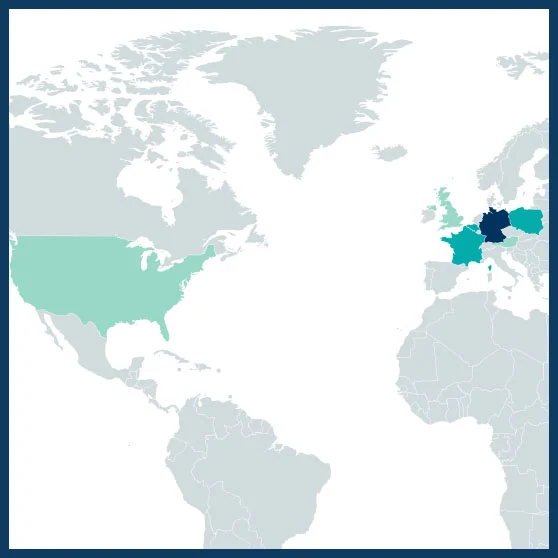01/03/2020 – 28/02/2023
€ 1,328,784
Prof. Dr. Sara Leonhardt
leonhardt@wzw.tum.de
Coordinator: Plant–Insects Interactions, Technical University of Munich – Freising – Germany
Free lance – Elixhausen – Austria
Plants and Crops – University of Ghent – Ghent – Belgium
Bees and Environment (BPA) – INRAE – Avignon – France
Evolution, Genomes, Behaviours and Ecology (EGCE) – University of Paris Sud/ CNRS/IRD – Gif sur Yvette – France
Nature Conservation and Landscape Ecology – Albert–Ludwigs–University – Freiburg – Germany
Zoological Museum of Kiel University – Kiel – Germany
Animal Ecology and Tropical Biology – University of Würzburg – Würzburg – Germany
Computational and Theoretical Biology – University of Würzburg – Würzburg – Germany
Intitute of Environmental Sciences– Jagiellonian University – Kraków – Poland
Natural Resources Institute – Kew Botanical Garden – Kew – United Kingdom
Entomology – University of Riversides – United–States

Given the pace of climate change, the question is raised whether local gene pools of forest trees will be able to adapt to the changing environmental conditions. Transfer of forest reproductive material (FRM) from arid sites (assisted gene flow; AGF) might improve tree fitness under increasing drought and heat. Source populations for such plantations may originate from lower latitudes or from arid sites within a larger region. However, current guidelines for FRM are strongly focused on local seed sources.
ACORN aims to identify oak populations capable to cope with future drought- stress due to climate change. The main objectives of the project are:
• To detect signatures of adaptation to drought at the regional and continent-wide scale in the genome of oaks.
•To investigate physiological and morphological traits involved in drought tolerance and address their genetic background.
• To address whether FRM transfer at the regional/continental scale will significantly increase the adaptive capacity of future forests.
• To assess which strategy of FRM transfer is optimal to increase benefits and decrease risks of such transfers.
ACORN will investigate forest stands of pedunculate, sessile and downy oak (Quercus robur, petraea and pubescens, respectively) from Central Europe and the Eastern Mediterranean. To address adaptation at the regional level, 10 pairs of closely situated populations of each species will be selected within each region. At the continent-wide scale, ACORN will compare the two study areas which display contrasting climates in terms of aridity. It assumes that past selection for drought tolerant phenotypes has resulted in genetic differences between different environments. To address this, an environmental association analysis will be performed to test whether there is a significant association between environmental conditions and tree genotypes. In addition, a common garden trial with progenies from the study stands will be set up to investigate physiological and morphological differentiation based on traits related to drought tolerance. A genome-wide association analysis between the phenotype and the genotype will provide clues about the genes underlying the assessed traits. Based on these results, an innovative AGF concept will be developed, in order to inform FRM guidelines and adjust them to the needs resulting from climate change.
The participation of applied research institutes, which are also responsible for formulation of FRM guidelines, will ensure that all practical and policy-related aspects will be considered from the beginning of the project. Moreover, a wider network of stakeholders will be engaged from the beginning of the project. These include policy makers like authorities in charge of issuing seed transfer guidelines, private businesses like nurseries and non-governmental organisations like nature conservation associations. ACORN attaches particular importance to an early exchange on the project aims and approaches, as well as stakeholders’ perceptions and expectations from the planned research. Thus, bilateral meetings will be organised at the national and international level throughout the project. A workshop at the end of the project will be held to inform stakeholders from all participating countries about the project results and the developed AGF concept.